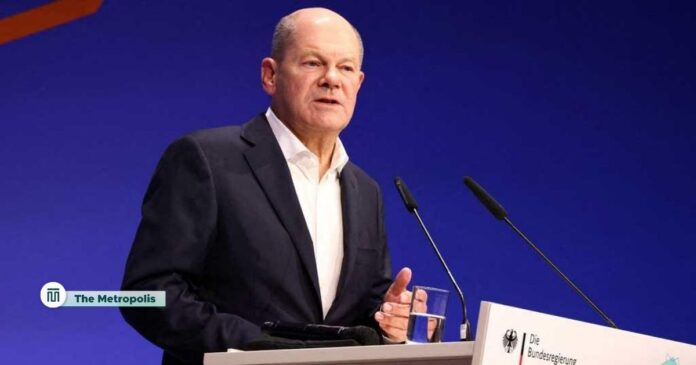Chancellor Olaf Scholz is leading a high-level delegation to New Delhi this week, aiming to leverage access to the expansive Indian market to decrease Germany’s dependence on China, even if India doesn’t emerge as the “new China.”
German companies, spanning sectors from automotive to logistics, are generally optimistic about India’s growth prospects, attracted by a large pool of skilled young workers, a lower cost base, and an economy growing at approximately 7%.
This visit occurs during a challenging period for Germany, as its export-driven economy faces a second consecutive year of contraction and concerns over a trade dispute between the European Union and China, which could adversely affect German businesses.
Following its difficult experience with reliance on inexpensive Russian gas before the Ukraine war in 2022, Germany has adopted a “de-risking” strategy aimed at reducing its exposure to Beijing.
Despite this shift, China remains a dominant player.
In 2022, German direct investments in India amounted to about 25 billion euros ($27 billion), which is around 20% of the investments made in China, according to Volker Treier, head of foreign trade at the German Chamber of Commerce DIHK. Treier believes this share could increase to 40% by the decade’s end.
“China will not disappear, but India will gain importance for German companies,” Treier noted.
He referred to India as a “litmus test,” emphasizing that if the strategy to de-risk from China is to succeed, India will play a crucial role due to its market size and economic vitality.
Scholz, accompanied by most of his cabinet, including the foreign and defense ministers, will meet Indian Prime Minister Narendra Modi on Friday before leading the seventh round of Indian-German government consultations. Economy Minister Robert Habeck will arrive a day earlier to inaugurate the biennial Asia-Pacific Conference of German Business.
However, German firms face challenges in India, such as bureaucracy, corruption, and the country’s tax system, as highlighted by a study from consultancy KPMG and the German Chambers of Commerce Abroad (AHK). Nonetheless, optimism remains high, with 82% of German firms expecting revenue growth over the next five years and 59% planning to increase their investments, up from 36% in 2021.
For instance, German logistics giant DHL intends to invest half a billion euros in India by 2026, aiming to capitalize on the rapidly expanding e-commerce sector. “We see tremendous growth potential in the Asia-Pacific region, of which India is a key part,” said Oscar de Bok, division head.
Volkswagen, facing declining sales in China and high production costs in Germany, is exploring new partnerships in India for joint production, already operating two factories and having signed a supply agreement with local partner Mahindra in February.
“I believe we should not underestimate the market potential in India, especially considering the regulatory uncertainties between the US and China,” stated finance chief Arno Antlitz in May.
Cologne-based engine manufacturer Deutz also announced a partnership this year with India’s TAFE, the world’s third-largest tractor maker, for TAFE Motors to produce 30,000 Deutz engines under license.
Jonathan Brown, a managing director at BCG, pointed out that India’s political stability and low labor costs make it an attractive option. “A ‘China + 1’ strategy should include India as a significant component.”
Trade between Germany and India reached a record high in 2023, with India projected to surpass Germany and Japan to become the world’s third-largest economy by the end of the decade. However, negotiations for an EU-India free trade agreement, which have been ongoing for years, still lack a resolution.
“The barriers to establishing a foothold in the market are substantial,” Brown remarked. “But once you’re established, the potential is immense. What doesn’t work is simply selling German products locally.”



